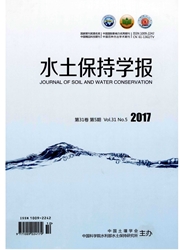

 中文摘要:
中文摘要:
利用阜康绿洲农田的田间灌水试验,研究了不同水分胁迫程度、不同水分胁迫时期对冬小麦光合,茎秆生长、地上和地下干物质累积以及籽粒产量的影响。结果表明;随着水分胁迫程度的加剧。冬小麦光合作用、株高、干物质累积、根系生长以及籽粒产量受到的抑制作用逐渐增强;灌水量为田间持水量40%的处理在成熟期时根干重要大于其它处理。是由于干旱胁迫促进了新生根的生长.从而可使根系充分吸收中下层土壤贮水。这是减少灌水次数和提高水分利用效率的一个有效途径,冬小麦灌浆期受到重度的水分胁迫,籽粒产量明显下降.而拔节期遭受轻度的水分胁迫在恢复灌水后产量反而要高于其它处理。
 英文摘要:
英文摘要:
The effects of different degree and period of water stress on photosynthesis, stem growth, grain yield and cumulating of up-ground and down-ground of dry-matter, were investigated based on watering experimentation in Oasis field. The results indicated that the more disadvantage affected photosynthesis, stem growth, cumulating of dry-matter, development of root and yield of winter wheat along with the increasing degree of water stress. The dry weight of root in the treatment, which the quantity of watering is 40% of soil water receptivity, was more than other treatments, because water stress can facilitate the development of new root of winter wheat that makes root system adequately take up water in mid-down layer soil and then attain the effect of water saving. The influence ofwater stress on yield of winter wheat in grouting stage is more serious, the yield of winter wheat suffered from water stress of light degree in jointing stage and then was rewatered was higher than other stage. winter wheat; water stress; photosynthetic function; biology characteristics
 同期刊论文项目
同期刊论文项目
 同项目期刊论文
同项目期刊论文
 期刊信息
期刊信息
